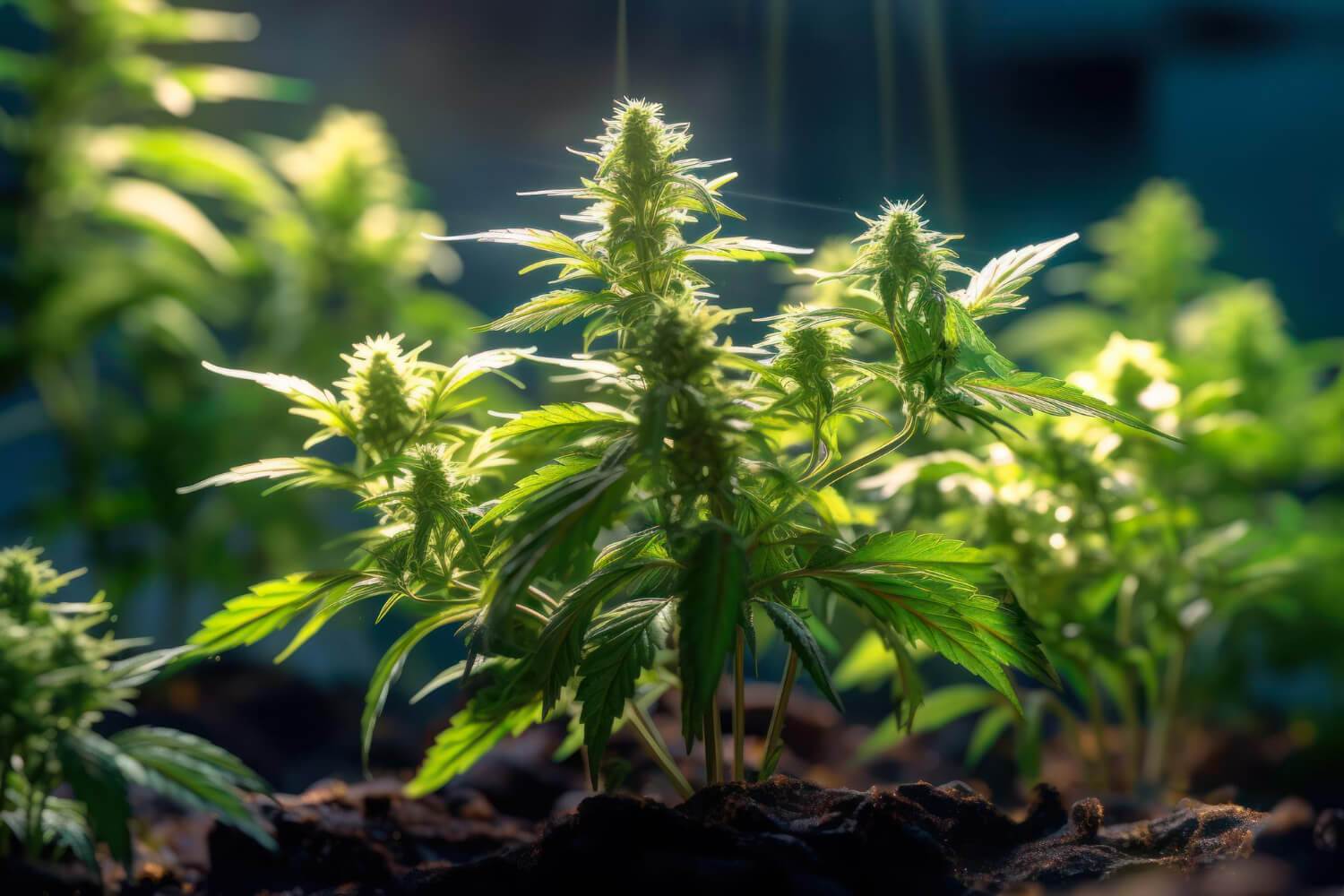In the last decade, we have seen the birth of several new and exciting cannabis products that are highly concentrated in alternative cannabinoids that cannabis plants only produce in traces. THCP (Tetrahydrocannabiphorol) and HHC (Hexahydrocannabinol) are two of those novel cannabinoids, also known as THC analogs. With effects and benefits similar and not so similar to their notorious brother delta-9, it is important to understand the differences between THCP vs. HHC.
THCP vs HHC: Definitions
THCP
First identified and isolated by a group of Italian researchers led by Dr. Giuseppe Cannazza at the University of Modena and Reggio Emilia in 2019, THCP may be one of the most potent cannabinoids when it comes to its intoxicating effects. Thanks to its longer alkyl side chain, THCP has a reported binding affinity approximately 33 times greater than delta-9.
But don’t get too excited, because as I reported in Is THC-P Synthetic? | Origin and Nature of this Cannabinoid, there are various reasons (efficacy at CB1 receptors, pharmacokinetics, metabolism, ability to penetrate the blood-brain barrier, etc.) that can affect potency. Anecdotally, most user reports say THCP’s potency is comparable to delta-9 THC. Now, the high may lean more towards inebriating the body and not quite capture delta-9’s cerebral euphoria.
HHC
First reported by Roger Adams in 1940, then naturally isolated by The de Las Heras group in 2020, HHC is a semi-synthetic cannabinoid created by transforming more common cannabinoids such as CBD into HHC through a process known as hydrogenation. Most users report HHC as the middle ground between delta-8 THC and delta-9, leaning more toward the delta-9 side if the HHC is the HHC-9R variety. HHC’s effects are pretty spot on to those felt with delta-9, albeit they’re milder.
THCP vs HHC: Potency and Psychoactive Effects
While a cannabinoid’s ability to bind and active CB1 receptors doesn’t tell you exactly how potent it is, based on user reports and limited research, you will likely find that THCP is going to be the more potent and intoxicating of the two cannabinoids.
Both cannabinoids are agonists of CB1 receptors while being antagonists of CB2 receptors. This, along with their similar structure and a few other factors, all lead to their effects being fairly similar. Some report that THCP’s high can feel almost psychedelic and may be much more prone to couchlocking you compared to delta-9 THC, and especially to HHC.
THCP vs HHC: Therapeutic Potential and Uses
Research on THCP and HHC is limited, and their potential therapeutic benefits and uses are not well-established.
From limited research that we can use in conjunction with user reports, the therapeutic benefits of THCP and HHC appear to be very similar to delta-9 THC. This especially goes for THCP, as the team that discovered it, analyzed some of the potential therapeutic uses the cannabinoid can have. This means both cannabinoids can help with sleep, inflammation, and so on.
- HHC: If you’re looking to medicate throughout the day without it affecting motor skills to the same degree as delta-9, choose HHC. If that’s still too much, consider giving delta-8 or low doses of THCV a try.
- THCP: Need greater relief with issues such as nausea and pain than what delta-9 delivers, and don’t need to worry about driving, etc., choose THCP.
THCP vs HHC: Safety and Side Effects
When it comes to cannabinoid extracts that rely on synthetic processes, it’s even more important that you are only buying items that contain these semi-synthetic cannabinoids through reputable sources.
While there is no inherent reason to be scared of cannabinoids created using synthetic processes, be it via hydrogenation or isomerization, they introduce a plethora of solvents and acids that need to be properly removed. Many experts are concerned that products containing semi-synthetic cannabinoids may still retain these chemicals that can pose a potential hazard to our health.
Both HHC and THCP can cause side effects, that likely mirror ones seen with delta-9 THC. If you have never used either before or using a new brand for the first time, I highly recommend starting with the lowest recommended dosage.

THCP vs HHC: Legal Status and Market Availability
Currently, if THCP is legal in your region, then it’s likely that HHC will be and vice versa — this isn’t always true, as you’ll soon see. However, THCP’s potential potency, which may give it greater intoxicating effects vs. delta-9, may cause lawmakers to rush and ban THCP where they may take slower action on HHC. Cause you know, lawmakers just love hearing that there is a synthetic cannabinoid that’s more potent than the main active compound in marijuana. It’s not like they won’t confuse binding affinity for potency either, right, right?
Joking aside, Interestingly enough, while THCP is currently legal in France, HHC and its derivates — HHC-acetate (HHCO) and hexahydrocannabiphorol (HHCP) — were banned in 2023. This, in fact, may help account for some of THCP’s surge in popularity as many stores quickly replaced HHC with THCP products. This should highlight to you that it’s incredibly important to stay up-to-date on cannabis-related regulations.
Consumer Considerations: Choosing Between THCP and HHC
If you have only used CBD or delta-8 before, I greatly recommend trying HHC before you give THCP a shot due to THCP’s greater potency.
On the other hand, for those who frequently consume high-THC extracts and cannabis flower, you may find THCP is right up your alley if you’re looking for a stronger high that, in particular, can intoxicate the body. Regardless of which cannabinoid you choose, please follow all restrictions on cannabis items regarding your jurisdiction.





